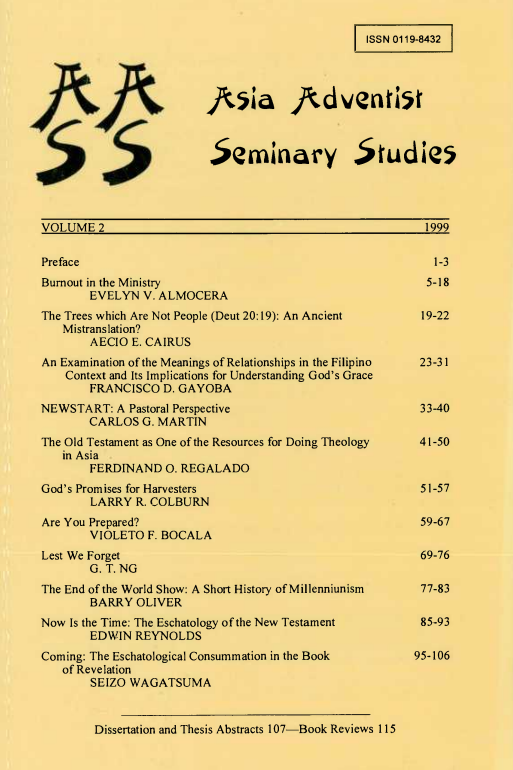Coming: The Eschatological Consummation in the Book of Revelation
Abstract
Christians, especially Adventists, tend to be Christocentric and neglect the theocentric. They emphasize the work of Christ and His second coming, but often forget or never think of those of God the Father. In fact, the role of Christ was to be the messenger or mediator of the covenant between God and His people (Mal 3:1; Heb. 8:6), and to lead every one to God, His "Father and their Father" (John 17:6; 20:17), as well as to Himself (John 12:32; 14:6; cf. Matt 11:28).
Most commentators on the book of Revelation lose sight of its theocentricity. The thinking of most Christians today tends to stop merely at Jesus Christ, but He tries to lead people's minds toward the Father also.
In studying the book of Revelation, we need to think of the roles of both Christ and His Father, and see the relationship that exists between the theocentric and the Christocentric. The meaning of the name, Jesus, which Joseph was told in a dream by an angel of the Lord to give to the Christ child, is that the Lord saves His people from their sins. Sin means a separation of men from God the Creator, while salvation means reconciliation, the restoration and sealing of the relationship between men and God. At the eschaton God will at last be worshiped by all of His creatures, especially by men whom He created in His image. The blotting out of sins from the universe and the reestablishment of the relationship between God the Creator and human beings are far more important matters on which to focus than various eschatological events or other matters, such as the signs of the last days or even the second coming of Jesus.
The purpose of this paper is to give theological consideration, by means of an exegesis of Rev 1:4-8, to the coming of God the Father as the eschatological consummation presented in the book of Revelation.

